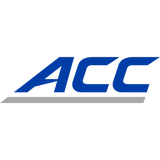
North Carolina hopes 'bathroom bill' deal saves NCAA events
RALEIGH, N.C. (AP) Basketball-mad North Carolina is hoping its move to roll back its ''bathroom bill'' will help it avoid another costly hit when the NCAA selects four years of championship sites for a variety of sports.
College athletics' governing body has said that it is deciding on locations for tournaments through the spring of 2022 and that it wouldn't award any to North Carolina if the law known as House Bill 2 was still on the books.
On Thursday, amid the mounting pressure, North Carolina's Republican-controlled legislature voted to undo HB2, and Democratic Gov. Roy Cooper signed the measure into law. But it wasn't clear if that would satisfy the NCAA, which made no immediate decision on North Carolina's fate.
NCAA President Mark Emmert said the association would review the legislation before making a decision in the coming days. He told reporters at a news conference that the NCAA Board of Governors will hold discussions to determine whether the new legislation ''is a sufficient change in the law for the board to feel comfortable going back to North Carolina.''
But he added: ''I'm personally very pleased that they have a bill to debate and discuss.''
While lawmakers repealed the much-criticized provision that said transgender people must use the public bathrooms that correspond to the sex on their birth certificate, activists complained that the new law still denies gay and transgender people certain protections from discrimination.
The stakes are high for North Carolina: The Associated Press calculated that the state made $71.4 million from 28 neutral-site NCAA events in the five academic years ending last spring. A more lucrative slate of events may be in jeopardy in this latest round of decisions.
Cities including Raleigh and Greensboro have submitted 133 bids to host NCAA championship events in such sports as golf, swimming and basketball through the 2021-22 academic year, with a potential economic impact of about $250 million, according to the North Carolina Sports Association.
The NCAA has already pulled seven championship events in baseball, soccer, lacrosse and other sports from North Carolina for the current academic year because of HB2. Also in jeopardy are events for the upcoming school year, including March 2018 NCAA men's basketball tournament games, awarded to Charlotte during a previous round of selections.
As an example of what's at stake, the Greensboro area - a frequent host nicknamed ''Tournament Town'' - has submitted 55 NCAA bids through 2022 that could bring in more than $100 million to the area, according to the Greensboro Convention & Visitors Bureau. Eight events over the five academic years ending in 2015-16 had an economic impact on the Greensboro area of more than $33 million, the bureau said.
The Atlantic Coast Conference, which also relocated sporting events, issued a statement Thursday that it would ''reopen the discussion'' about holding neutral site championships in North Carolina because of the new legislation.
Dollars aside, the NCAA sanctions are especially painful for North Carolina, where love of college basketball is part of the state's very identity and where schools like Duke and the University of North Carolina are perennial powerhouses.
''No state loves its college sports more than North Carolina. It's part of our culture, our fabric and our history,'' Scott Dupree, executive director of the Greater Raleigh Sports Alliance, wrote in a February plea to lawmakers. ''But sadly, at this moment, the NCAA championships that our citizens love so much are in jeopardy, on the brink of being lost for the long term.''
Before Thursday's deal passed, Greensboro businessman and UNC fan John Cohen complained that ''the people in Raleigh are playing politics with a reputation that North Carolina worked decades to earn.''
Cohen was student manager under legendary UNC coach Dean Smith in the late 1970s and has had season tickets to UNC men's basketball for years. His Tar Heels would have played in Greensboro this month if the NCAA tournament site hadn't been moved to South Carolina because of HB2.
''This isn't a question about who's right,'' Cohen said. ''This is a question about what's best for our state. Let's move on.''
---
AP Basketball Writer Aaron Beard contributed to this report from Glendale, Arizona.
---
Follow Drew at www.twitter.com/jonldrew and Dalesio at www.twitter.com/emerydalesio
